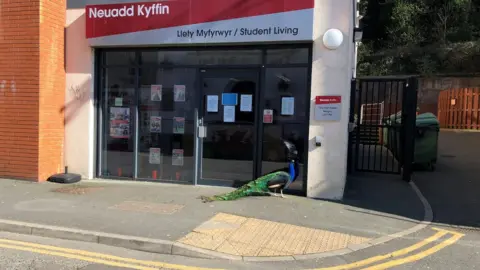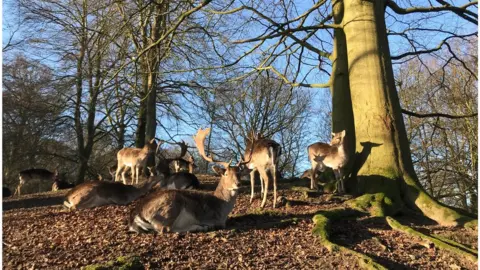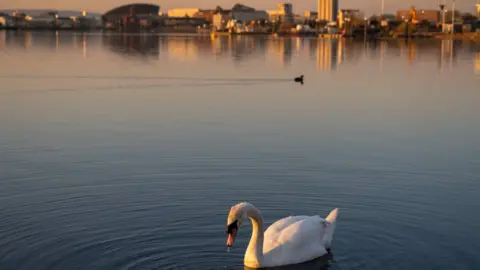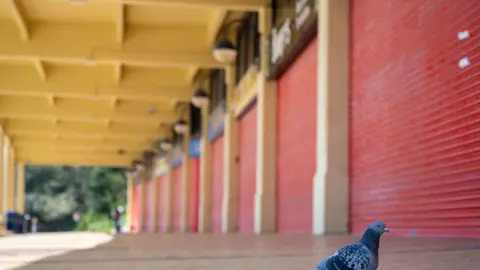Coronavirus and nature: Wales' deserted streets are 'massive experiment'
As humans stay in their homes, nature is adapting to life without them.
Empty streets have seen mountain goats roaming the streets of Llandudno and peacocks have been seen on Bangor high street.
"This is unprecedented, it is a massive nature experiment," said Graeme Shannon of Bangor University.
Unable to leave their homes, PhD students at the university are using remote tracking to see if animals are changing their behaviour.
With many people working from home and not leaving the house except for essential travel and daily exercise, animals are adapting to the streets being near deserted during the coronavirus pandemic.

Dr Shannon said the lack of people and traffic was turning day to night for animals.
The Kashmiri goats, which normally venture down the Great Orme into Llandudno during bad weather, were spotted roaming the seaside town, eating hedges and flowers from gardens and standing on cars.
While in Bangor, peacocks have been photographed on the usually busy high street, and there have been reports of foxes and deer venturing closer to people's homes in the day.

Allow Facebook content?

Dr Shannon said while there was a devastating human cost, there were some positives for nature, such as reduced pollution and cleaner streets.
He said animals who were usually used to living in close proximity to humans, like foxes, in or near towns or cities, had responded rapidly to the lack of people out and about.
And as the restrictions continued we could see more animals venturing into communities to take advantage of food, he said.
"The frustration is we cannot study it as the lockdown affects us as well," said the zoology professor, who said scientists could monitor animals remotely with existing GPS tags and cameras to track any changes in behaviour.
PhD students at the university are remotely monitoring fallow deer in the Elwy Valley, near St Asaph, to see if their habits change.
 Graeme Shannon
Graeme Shannon Getty Images
Getty ImagesHe pointed to times like the Chernobyl disaster in Ukraine where wildlife moved in about a decade after humans had gone.
"That is an extreme example - we haven't disappeared, we are just restricted to our homes," he said.
"Nature is not suddenly taking over, but wildlife is very adaptable and resilient, the change in just a couple of weeks has been fascinating."
 Getty Images
Getty Images Getty Images
Getty ImagesDr Shannon said with less noise pollution and people having more time during the restrictions, they may notice and appreciate more of the wildlife around them, such as an enjoying bird songs.
"Hopefully when we return to our normal activities, maybe this will change our perception of wildlife," he said.
 Getty Images
Getty Images